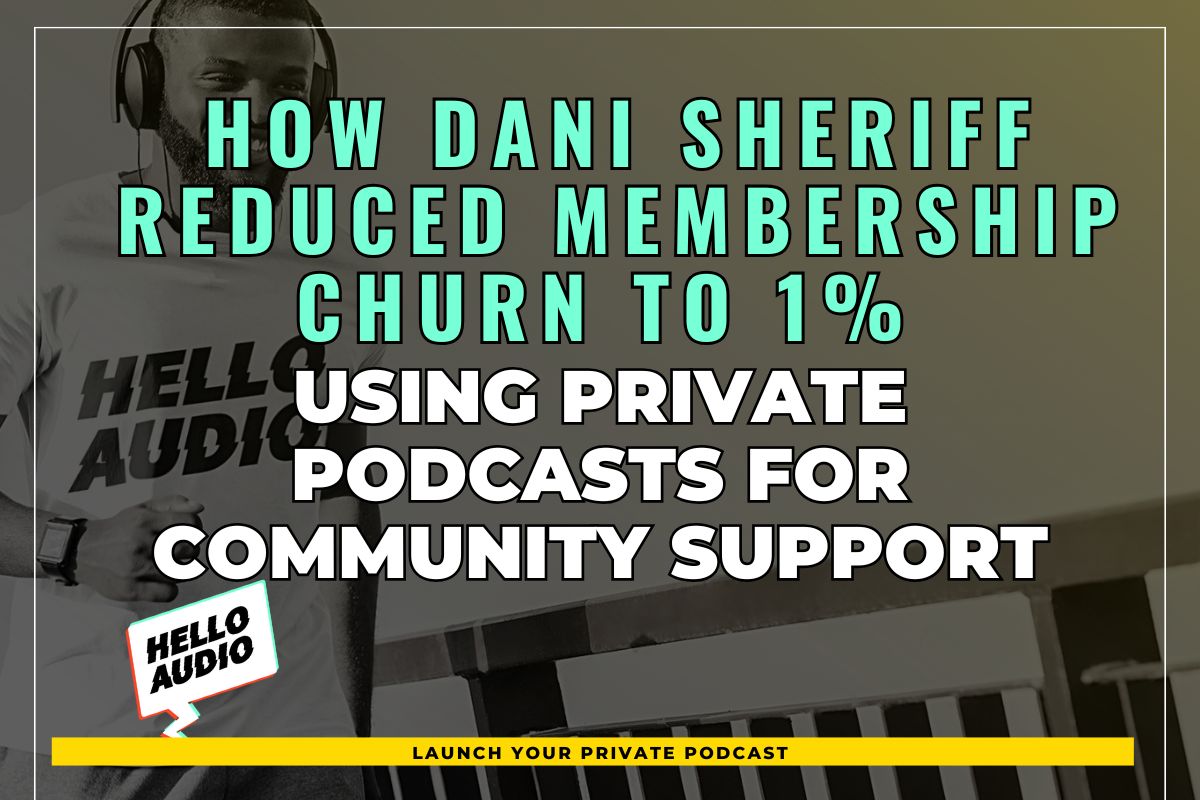Okay, let’s admit it: social media can often feel not-so-social.
Loneliness hiding in every notification, information overload in every scroll – honestly, things get overwhelming sometimes.
But is it all gray skies and mud puddles?
Absolutely not.
You can trust online communities with top-tier content that piques your interest or to meet like-minded people.
Shared interests, learning opportunities, and (above all) a true sense of belonging – these social hubs always offer something worthwhile.
In this comprehensive guide, we will explore 20 compelling reasons why starting one can skyrocket your brand visibility.

TL;DR – 20 Unmissable Benefits of an Online Community for Brands
Here are the top 20 benefits illustrating how an online community can transform your brand, fostering loyalty, innovation, and unparalleled market presence:
- Collaborative Problem Solving
- Empowerment of Members
- Learning and Development
- Real-Time Communication
- Innovation and Creativity
- Networking Opportunities
- User-Generated Content
- Advocacy and Influence
- Increased Engagement
- Brand Loyalty Building
- Cost-Effective Support
- Feedback and Insights
- Diverse Perspectives
- Sense of Belonging
- Knowledge Sharing
- Market Research
- Personalization
- Accessibility
- Peer Support
- Global Reach
And that’s not all.
If you aim to start your own community, podcasting can be the biggest bang for your buck. Here’s how you can reap all these benefits with Hello Audio and start building your community of active podcast listeners!

What Are Online Communities?
Online communities are virtual groups of people joining to share a common interest, purpose, or identity. These include:
- Social media groups dedicated to interests, fandoms, or professional networks, like Facebook groups, subreddits, and Discord servers.
- Online message boards and forums for sharing information, exchanging views, and debating specific topics. For example, slack channels to foster a group of like-minded people.
- Brand communities to encourage interaction with their customers or team members.
- Online gaming communities where users gather to play games, work, interact, etc.
Now, let’s look at the multiple benefits of building an online community and put all your doubts to rest.
20 Benefits of Online Communities
Beyond social relationship-building, online communities provide numerous other real-world benefits to their members and administrators. Here are twenty ways how these virtual avenues stand beneficial for both parties involved:
1. Collaborative Problem Solving
Complex issues become easier to handle when individuals with diverse knowledge, experiences, and viewpoints join hands. This is why online communities are becoming a trending go-to platform for collaborative problem-solving.
Community members can tap into the group’s collective intelligence to approach typically unsolvable issues by posting content, raising queries, or creating polls. Together, they can detect blind spots and identify unique solutions by pooling their experiences, thoughts, and creative ideas.
2. Empowerment of Members
Online communities are underrated channels to empower your audience. Here’s how:
- They offer a safe environment for individuals to learn, exchange thoughts, and seek guidance.
- Many communities provide exclusive access to resources, training, and mentors to help members acquire new skills, build their self-esteem, and accelerate their career growth.
- Their peer-to-peer support networks help encourage, critique, and support members to overcome roadblocks and celebrate victories.
Motivated by the immense support, members reciprocate by proactively contributing to the community’s growth and success.
3. Learning and Development
As per studies, leading organizations progressively include Facebook groups in their corporate L&D and training curricula. Trainees/employees respond to session-related quizzes, Q&A sessions, etc., and share their opinions enthusiastically. Members also share pictures, personal experiences, and essential news/articles to engage with peers and fellow trainees.
Simply put, people can stay updated on industry trends, share best practices, and discuss hot topics in online communities. Such regular exposure to diverse perspectives and knowledge promotes continuous learning and development.

4. Real-Time Communication
Geographical distance is no longer a barrier to communication and collaboration, and that’s why online communities are essential.
Members can connect and collaborate from different corners of the world through live chat and video conferencing software.
Standard communication channels (email, message boards, forums) are prone to inconsistent communication and delayed responses. However, that’s not the case with online communities. Quick calls with trained professionals, instant expert feedback, or joining real-time brainstorming sessions – get things done anytime, anywhere.
5. Innovation and Creativity
You’d think people are their most innovative and creative when they’re working face-to-face, right?
Studies have found that workers experienced 56% spiked creativity in online, remote-based office settings instead.
Online communities are underrated idea factories, a supporting pillar of remote work settings. Here’s how these platforms empower their members to spark innovation and creativity:
- Brainstorming ideas with a worldwide network of experts and getting direct input from different POVs
- Getting constructive criticism that will challenge your assumptions and help you perceive the situation from a new angle
- Teaming up on projects with like-minded creative folks and creating something truly unique
6. Networking Opportunities
Old-school cold emails and networking events are a thing of the past. Professional networks like LinkedIn connect you with like-minded people in seconds and open doors you never knew existed.
LinkedIn accommodates more than a billion users from all regions of the world. Members can follow or subscribe to prospective mentors/industry leaders to discover new industry-relevant L&D opportunities. Besides, anyone can land their dream job or form lucrative partnerships by networking with the right people.
7. User-Generated Content
Let’s get real: creating huge amounts of content is stressful.
UGC encourages audiences to contribute their original material, which reduces the strain on content creators. They can focus more on community growth, management, and member engagement with the freed time and resources.
Besides, user-generated articles, guides, reviews, and even original artwork influenced by the community’s theme diversify their content library.

8. Advocacy and Influence
Actively growing brand communities have more avid supporters who share their vision and values. These people can become effective brand ambassadors, spreading organic awareness for others to sign up for their cause.
This word-of-mouth marketing is priceless for brands because it capitalizes on their community members’ trust and credibility. Their positive comments and reviews optimize the brand’s reputation for free and convince new prospects to spend their money.
9. Increased Engagement
Online communities encourage members to ask questions, provide feedback, and actively participate. This back-and-forth dialogue keeps the discussion moving and your audience interested. Events, polls, and community-themed tasks unite members, promoting teamwork, competitive spirit, and shared experiences.
10. Brand Loyalty Building
Online communities bridge the biggest gap in B2C relationships: two-way communication. Customers can express their views, make ideas, and report problems. Brands can interact directly with customers, address their needs, and collect vital feedback. It is a win-win situation for both.
Plus, more organic brand conversations happen when customers share experiences and recommend how to use certain products. These satisfied members freely share positive experiences, recommend the brand to others, and even defend their image online.
11. Cost-Effective Support
Online communities provide multiple paths for cost-effective support, benefiting both administrators and members.
Members frequently help each other by answering questions, offering answers, and debugging common issues. This reduces the workload on dedicated support staff. Users also receive faster replies/solutions when community members contribute.
Furthermore, the community’s FAQs and solutions provide a searchable knowledge base that all members can access for self-service support.
12. Feedback and Insights
Online communities (unlike surveys or focus groups) provide immediate, unfiltered, raw criticism of your work. Members openly share their experiences, thoughts, and pain points, giving important feedback you won’t find elsewhere.
As discussions evolve and new topics emerge, brands gain real-time insights into their audience’s evolving trends and preferences.
Here’s an underrated benefit of online communities: they often serve as incubators for new ideas. Members can influence the brand’s marketing tactics, content creation, and product development through brainstorming and discussion sessions.

13. Diverse Perspectives
Algorithms and social media bubbles often trigger confirmation bias, exposing people to information that mostly supports their preexisting beliefs. Online communities fix it by introducing members to solid, unique perspectives and questioning echo chambers.
Here’s another unpopular benefit: these forums create a safe space for marginalized people to express their views and experiences to a worldwide audience. These minority groups and their stories remain widely neglected in popular media debates. Online communities promote diversity by amplifying these underrepresented voices while opposing mainstream narratives.
14. Sense of Belonging
Remember that warm, inviting feeling you get upon finally meeting others who “get” your niche interest or struggles to a tee? This is what makes online communities so popular.
Connecting with people who share your passions, interests, or struggles helps you feel less isolated and more like you belong. Members can share their experiences, struggles, and accomplishments, knowing they will be supported, understood, and encouraged by those who just “get it.” Best feeling ever, we know, right?
15. Knowledge Sharing
In online communities, information is easily accessible around the clock. Members can learn, research, and contribute at their convenience. This is a blessing for busy individuals with limited access to basic educational resources.
Online communities are dynamic. Be assured that their knowledge library is always evolving and updated. Members can easily learn about recent findings, discuss emerging trends, and stay current in their field of interest in one place.
16. Market Research
If you’re underestimating the benefits of online communities as mere internet water coolers, now is the best time to stop.
Apart from being a great place to hang out, communities offer steady customer insights. Need a dynamic picture of shifting customer preferences?
- Experiment with unreleased concepts
- Obtain feedback on new products
- Track change in sentiments over time
Need more detailed insights? Engage with targeted groups. Online communities bring like-minded people together; there’s also no room for filtered responses. People are more inclined to voice their actual thoughts and grievances in community discussions.
This helps brands communicate with niche user segments or demographics to acquire raw, unfiltered thoughts they can trust.

17. Personalization
By leveraging data and member preferences, online communities thrive at offering personalized service. They collect information about individuals’ interests to create content recommendations, debates, and event invitations.
Members can choose specific channels/sub-groups, join focused discussions, and receive personalized feeds. Even the content feed evolves, highlighting posts and topics likely to strike a chord with each member using algorithms.
18. Accessibility
By offering easier access to information than ever, communities can support learning and participation for all members. Here’s a brief breakdown:
- Text, audio, and video: People can choose to read, listen, or watch the content.
- Different languages and closed-captions: People who speak another language or have motor disabilities can still understand the content.
- User-friendly platform: Everyone, even those with disabilities, can easily navigate and interact with the community.
Speaking of varied content formats, podcasting is the latest buzzword in town, and brands are progressively hopping on this trend. Why wait? Launch your own private podcast with Hello Audio’s 7-day FREE trial and engage your customers with audio-first marketing.
19. Peer Support
Do you often feel alone and clueless in the face of your challenges? Join an online community.
These platforms foster empathy by connecting you with people who have been there before. Open communication with peers creates mutual support and understanding, lessens stigma, and normalizes experiences.
But don’t mistake it for just emotional help. Online communities also expose you to strong viewpoints, useful resources and teach problem-solving skills. Your active participation is also key to building confidence and core life skills.
20. Global Reach
According to reports, 38% of brands are running an online-only community, and the number keeps rising. With exposure to billions of active global users at a minimal cost, brands are progressively shifting their focus to setting up thriving internet communities.
Why not, we say. Their geographical and time zone flexibility allows for 24/7 brand conversations among community members.
Honestly, does it get any better?

Challenges in Building Online Communities
As tempting and lucrative as it may sound, building an online community from the ground up is a bumpy road to travel. Starting out, here are three common challenges that you may face as an administrator:
1. Standing Out in the Competition
Cutting through social media noise is a three-fold challenge: garnering attention, increasing engagement, and keeping member churn at an all-time low.
Standing out in a sea of choices can be difficult, so gaining members requires a compelling hook. It takes proactive efforts and consistent, informative content to keep people interested.
Finally, determining why members leave while implementing retention measures is vital to reducing member churn.
2. Maintaining an Inclusive and Positive Community
Due to anonymity, online groups may, sometimes, be a source of conflict. Building a truly diverse and inclusive space requires proactive moderation, well-defined policies, and concerted efforts to prevent bias and maintain respect.
For instance, if your company operates in a hybrid or work-from-home model, you might have multiple daily meetings or team catchups. So, to give people more flexibility and leverage the time you spent there, start recording your meetings and repurposing them into private podcats. Here’s why:
- Your employees can listen to it no matter where they are (if they cannot attend the meeting).
- You can increase your reach and build an authentic brand name for your business by showing people how things work behind the scenes.
Learn more about how Hello Audio can help you with this in minutes!
3. Content Planning and Creation
Administrators always need high-quality content to keep their online community engaged. However, creating it can be tedious and demanding. Here’s our advice: repurpose your content in different formats (text, audio, and video) that will suit diverse audiences and learning styles. Use Hello Audio to effortlessly convert your existing video or audio content into private podcasts for people always on the go.
Always remember that content usage ethics and intellectual property rights must be respected in whichever online environment you operate.

Frequently Asked Questions (FAQs)
We searched the web for the most frequently asked queries about online communities and how they can benefit everyone. Here’s our response:
How Does an Online Community Contribute to Content Generation?
Online communities are brimming with content creation potential. Diverse members drive a vibrant and dynamic content pool by sharing their unique knowledge, asking questions, collaborating on resources and guides, and contributing ideas and experiences.
Are Online Communities Safe Spaces for Sharing and Discussion?
It is subject to the community’s norms and moderation. Establishing civil, welcoming conversations where everyone feels comfortable sharing and learning is vital. As an admin, you must implement strong moderation, clear rules, complaint tools, and support networks.
Can Online Communities Help in Professional Networking?
Absolutely! Communities connect you with like-minded professionals, providing mentorship, partnership, and career opportunities.
How Does an Online Community Enhance Learning and Personal Growth?
Online communities provide peer-to-peer learning, different points of view, constructive feedback, and support networks, all of which boost learning and personal growth.
Conclusion – Advantages of Online Communities
Online communities have gained massive popularity for promoting engagement, learning, and a sense of belonging.
Through peer support, shared knowledge, global exposure, and many other benefits, these online spaces improve people’s lives and help businesses flourish.
Ready to take the first step? Start your audio-first community by transforming your video content into high-quality private podcasts with Hello Audio. Sign up for a free 7-day trial and launch your podcast within a day!













